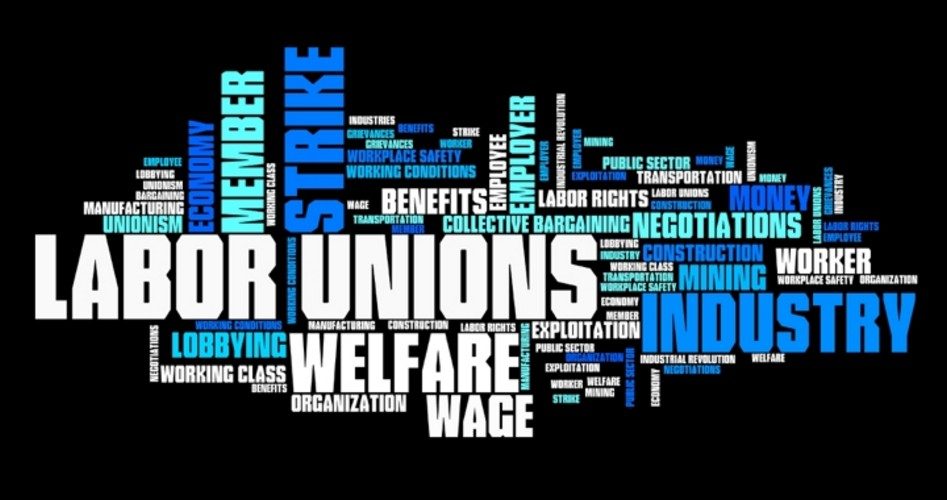
When Rebecca Friedrichs, the lead plaintiff in a lawsuit against the California Teachers Association, learned in June that the Supreme Court denied her petition to rehear her complaint over the union extracting dues from her paycheck without her consent, she declared:
My heart is broken for America’s children and families, as their teachers will continue to be forced to fund policies and highly political collective bargaining processes which place the desires of adults above the rights and needs of children.… I’m optimistic [that] we can continue … to restore First Amendment rights to teachers and other public sector workers. Our kids are worth the fight!
Terry Pell, president of the Center for Individual Rights, the public-interest law firm representing Friedrichs, agreed:
We are greatly disappointed in today’s decision…. We continue to believe that forcing individuals to subsidize political speech with which they disagree violates the First Amendment. We will look for opportunities to challenge compulsory union dues laws in other cases and continue our efforts to stand up for the rights of teachers and public sector workers across the country.
There’s a very good chance that Pell will get that opportunity, once President Donald Trump’s Supreme Court nominee, Neil Gorsuch, is confirmed by the Senate. There’s also a very good chance that by the time Friedrichs v. California Teachers Association hits the court’s docket, it won’t be necessary. Legislation offered by Representative Joe Wilson (R-S.C.) would require every state in the union to adopt the right to work without workers being forced to pay union dues. Said Wilson’s staffer Leacy Burke: “Similar legislation has been introduced in the past, but we believe that this year the legislation could garner more support than ever before.”
The momentum, as well as the argument, is clearly on the side of the First Amendment. For decades unions have claimed the right to collect dues from non-members to keep them from “free-riding” — enjoying the “privileges” they gain from the unions’ collective-bargaining efforts. Just since 2012, Indiana, Michigan, Wisconsin, West Virginia, and Kentucky have all gone “right-to-work,” with Missouri and New Hampshire close behind.
Nowhere was the impact felt more decisively than in Michigan and Wisconsin in the November election. Trump won Wisconsin’s 10 Electoral College votes, with the state’s popular vote being 1,409,467 for Trump and 1,382,210 for Hillary Clinton. In Michigan the margin was even slimmer: Trump: 2,279,805; Clinton: 2,268,193. These traditionally union states suffered from significant membership losses ever since they became “right-to-work,” greatly reducing the amount unions were able to spend on influencing the election’s outcome. It also greatly reduced unions’ ability to get out the vote.
In Wisconsin, for example, the state’s Education Association Council has lost about 60 percent of its membership since Governor Scott Walker pushed through Act 10 and right-to-work legislation. Act 10, it will be remembered, limits union collective bargaining just to wage negotiations, requires annual union recertification, and ends the automatic collection of union dues by payroll deduction.
When Michigan passed its right-to-work law in 2013, the Michigan Education Association had 113,000 members. By 2016, membership in the union had dropped to just over 90,000. As Matt Patterson, executive director of the Center for Worker Freedom, put it: “Give people the chance to leave their union, it turns out, and lo and behold there’s a stampede for the door. And these fleeing workers take their money with them — money that unions can no longer use to buy politicians.”
For pro-union Professor Raymond Hogler of Colorado State University, the war is nearly over. First, as he wrote in November, Trump’s victory will change the face of the National Labor Relations Board (NLRB), allowing it the opportunity to repeal much of the previous administration’s pro-union rules and regulations. Second, Gorsuch’s potential nomination to the Supreme Court would shift the court’s balance toward freedom of choice, helping Rebecca Friedrichs if her appeal gets there. Third is the momentum toward right-to-work by the states. In his “obituary,” Hogler wrote:
Since the Taft-Hartley Act of 1947, class forces have fought for supremacy over the political and economic machinery as Republicans attempted to roll back the consequences of the New Deal legislative revolution…. The empire of right-to-work [now] leans toward further entrenching the power of corporations, not the economic emancipation of American wage earners.
Freidrichs doesn’t see it that way, of course. She sees her teachers’ union taking money from her paycheck and using it to promote ideology with which she strongly disagrees. Her First Amendment-protected rights are simply overpowering unions’ claims of “free-riding” as an excuse for extracting dues from non-union members. Hogler is correct: Right-to-work is sounding the death knell for public-sector unions.
An Ivy League graduate and former investment advisor, Bob is a regular contributor to The New American magazine and blogs frequently at LightFromTheRight.com, primarily on economics and politics. He can be reached at [email protected].



